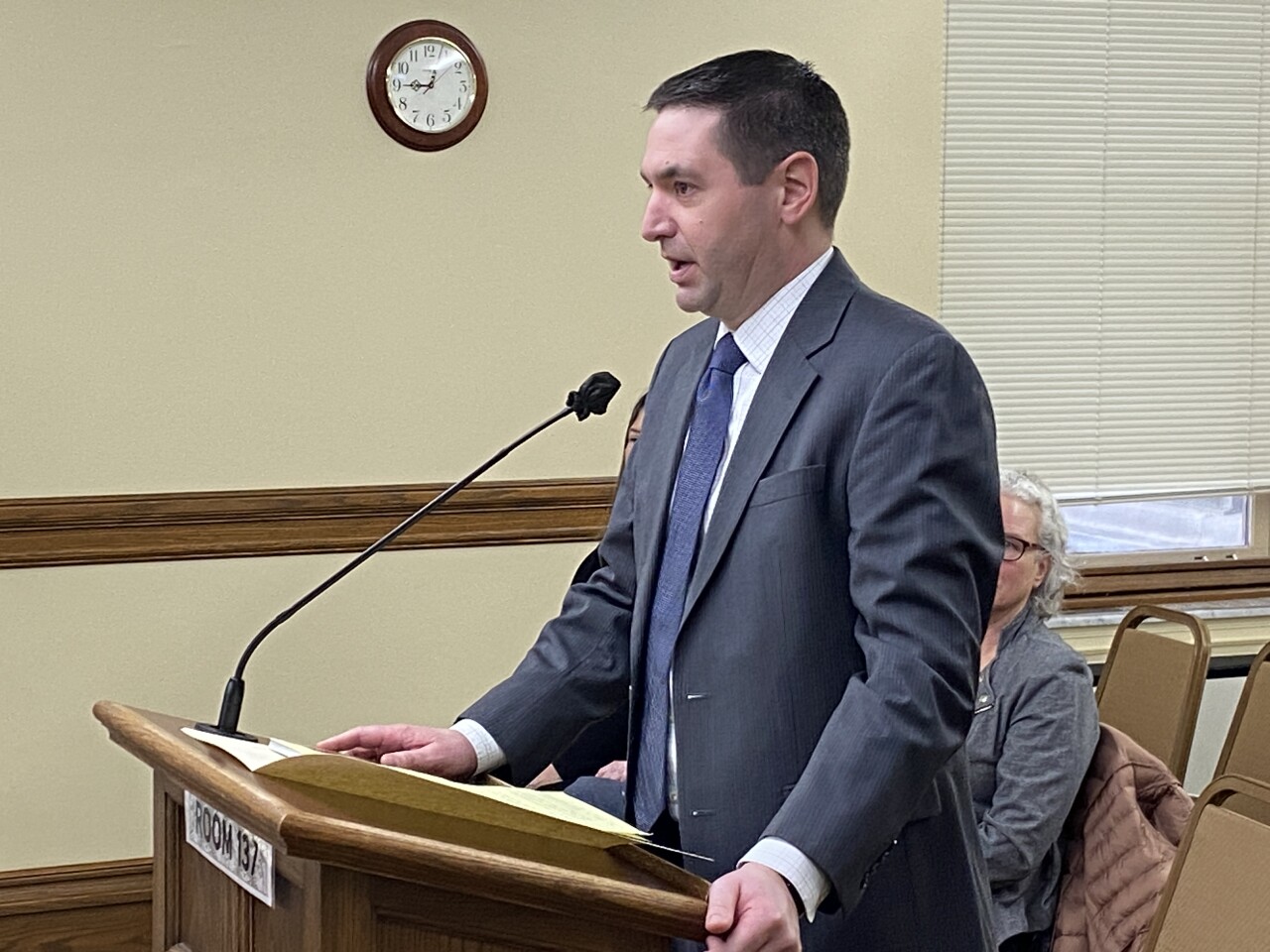Montana lawmakers hear proposed overhaul to human trafficking laws – KTVH
HELENA — Jan. 11 is the National Day of Human Trafficking Awareness, and Montana leaders marked the day by proposing a major overhaul of the state's trafficking laws.
“It's time to tell those offenders ‘Not in our state,'” said Rep. Jodee Etchart, R-Billings.
Etchart is sponsoring House Bill 112, at the request of the Montana Department of Justice and Attorney General Austin Knudsen. The bill, which had its first hearing Wednesday in the House Judiciary Committee, comes as Montana reports rapid growth in the number of trafficking cases under investigation.
Knudsen identified HB 112 as one of his top priorities for the 2023 legislative session. The number of trafficking investigations DOJ is tracking rose from 7 in 2015 to 68 in 2021 – an increase of 871%. However, Knudsen said Wednesday he doesn't believe it's because that many more offenses are being committed.
“I think this is a crime that has always been here,” he said. “We just didn't know what it was, and frankly we were a little scared to talk about it.”

Human trafficking – forcing someone to perform labor or engage in commercial sexual activity – is currently defined in state law as one of four offenses, only one of which currently contains the word “trafficking.” Etchart said Wednesday that no one has been convicted under the current human trafficking statutes yet, because it's easier to prove “promotion of prostitution,” and it comes with heavier penalties.
HB 112 would consolidate a variety of existing laws into four updated offenses:
- Sex trafficking would include actions currently considered promotion of prostitution, like encouraging someone to become a prostitute or soliciting clients for a prostitute. It would also include transporting or isolating someone for the purposes of commercial sexual activity.
- Aggravated sex trafficking would include the same conduct if a person used fraud, coercion or deception to control a victim.
- Child sex trafficking would include the same conduct when a victim is under 18, and those charged could not defend themselves by saying the child consented or they believed the child to be an adult.
- Labor trafficking would include using coercion to compel someone to work.
The bill would establish mandatory minimum sentences for the most serious offenses, including aggravated sex trafficking and when any victim is under 18. It would set 100-year sentences for child sex trafficking.
Knudsen also said HB 112 would create more severe penalties for those who solicit sex trafficking victims.
“We have got to let the message be known to those in Montana who would prey on these innocent victims, that if you do this and we catch you, you are not going to get a slap on the wrist, you are not going to get a fine and a couple days in jail – you're going to do some hard time and this is going to be a felony,” he said.
After the hearing, the DOJ sponsored an event in the State Capitol rotunda, where advocacy groups talked to lawmakers and the public about human trafficking.
“People for the most part, even today, have no idea – number one, what is human trafficking?” said Lowell Hochhalter, executive director of the LifeGuard Group. “And once they find out about it, they're in a complete denial that it's happening, not only in the state of Montana but in their small community.”
The LifeGuard Group offers trainings on recognizing and responding to human trafficking. It also provides staff for the Montana Human Trafficking Hotline, (833) 406-STOP.
Hochhalter said it's important for everyone to have a clear understanding of Montana's trafficking laws, and HB 112 goes a long way to clarify them.
“There was so much confusion, it was such a mire, and now there's clarity in this bill of what the crimes are, what the penalties are going to be,” he said. “It just makes it so easy, and hopefully it pushes things through, and we start to see those who are the perpetrators receive the penalty they are due.”
Also on Wednesday, the House Judiciary Committee heard testimony on another bill from the Department of Justice: House Bill 79, from Rep. Amy Regier, R-Kalispell, which would launch a sexual assault response network program. They took no immediate action on either bill.
This “Eyes on Trafficking” story is reprinted from its original online location.
 ABOUT PBJ LEARNING
ABOUT PBJ LEARNING
PBJ Learning is a leading provider of online human trafficking training, focusing on awareness and prevention education. Their interactive Human Trafficking Essentials online course is used worldwide to educate professionals and individuals how to recognize human trafficking and how to respond to potential victims. Learn on any web browser (even your mobile phone) at any time.
More stories like this can be found in your PBJ Learning Knowledge Vault.
EYES ON TRAFFICKING
This “Eyes on Trafficking” story is reprinted from its original online location.
ABOUT PBJ LEARNING
PBJ Learning is a leading provider of online human trafficking training, focusing on awareness and prevention education. Their interactive Human Trafficking Essentials online course is used worldwide to educate professionals and individuals how to recognize human trafficking and how to respond to potential victims. Learn on any web browser (even your mobile phone) at any time.
More stories like this can be found in your PBJ Learning Knowledge Vault.
